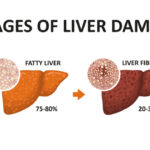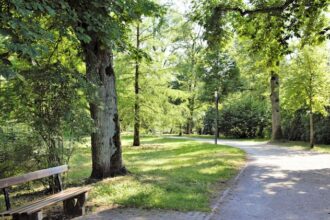On 15 January 2025, the journal Aging (Aging-US) published a research paper in Volume 17, Issue 1, entitled “Association between physical activity practice and sleep quality of older people in social isolation during the COVID-19 pandemic and Health Guidelines and future studies for the post-COVID period: a systematic review.” This comprehensive study was conducted by Alexandro Andrade, Ana Cecília Rosatelli de Freitas Bastos, Anderson D’Oliveira, and Guilherme Torres Vilarino from the Santa Catarina State University (UDESC) in Brazil. It aimed to dissect the linkage between physical activity (PA) and sleep quality amidst the older adult population who were socially isolated during the COVID-19 pandemic.
The investigation highlighted how reduced physical activity levels during social isolation adversely affected sleep health, accentuating the necessity of regular physical movement within ageing communities. This review meticulously analysed data from nine studies that surveyed over 11,500 elderly individuals from diverse geographical locations, including China, Japan, Brazil, Scotland, Canada, Italy, and Spain. The analysis highlighted that in four of these studies, a decline in physical activity was correlated with diminished sleep quality. Conversely, one study reported that individuals who sustained their physical activity levels enjoyed better sleep patterns. In contrast, the remaining four studies did not demonstrate any significant relationship between physical activity and sleep quality.
Adequate quality sleep is indispensable for healthy ageing, considering that sleep disturbances are often associated with cognitive decline, depression, and diminished mental well-being. The unique challenges posed by the COVID-19 pandemic, such as escalated stress levels, heightened isolation, and increased anxiety, further deteriorated sleep health. The researchers advocated for active lifestyles, recommending activities like walking, stretching, and structured exercise routines to ameliorate sleep quality and enhance overall mental health during such critical times.
The study underscored the significance of physical activity as an easily accessible intervention to bolster sleep quality among older adults, especially during crises. It encouraged integrating regular exercise into daily routines as a preventative measure against sleep disorders and to foster overall well-being in ageing populations. The researchers noted, “Physical activity can be considered a safe and effective practice to improve sleep quality in older adults due to its well-documented benefits in the literature.”
As society progresses beyond the pandemic, the authors called for formulating and implementing public health policies that actively promote physical activity amongst the senior population. Health professionals and caregivers are urged to advocate for consistent physical activity as a preventive strategy against insomnia, poor sleep, and associated mental health issues while also highlighting the long-term consequences of physical inactivity. The importance of further research into the optimal types and intensities of physical activity that best improves sleep quality in older adults was also emphasised.
The paper recommended individual and group exercise and physical activity in the post-COVID scenario. Such measures aim to mitigate the adverse effects of social isolation and enhance the sleep quality of older adults. Future research is expected to delve into how various exercise routines can specifically impact sleep health, particularly for older adults recovering from COVID-19 or continuing to face ongoing sleep challenges.
More information: Alexandro Andrade et al, Association between physical activity practice and sleep quality of older people in social isolation during the COVID-19 pandemic and Health Guidelines and future studies for the post-COVID period: a systematic review, Aging-US. DOI: 10.18632/aging.206180
Journal information: Aging-US Provided by Impact Journals LLC








